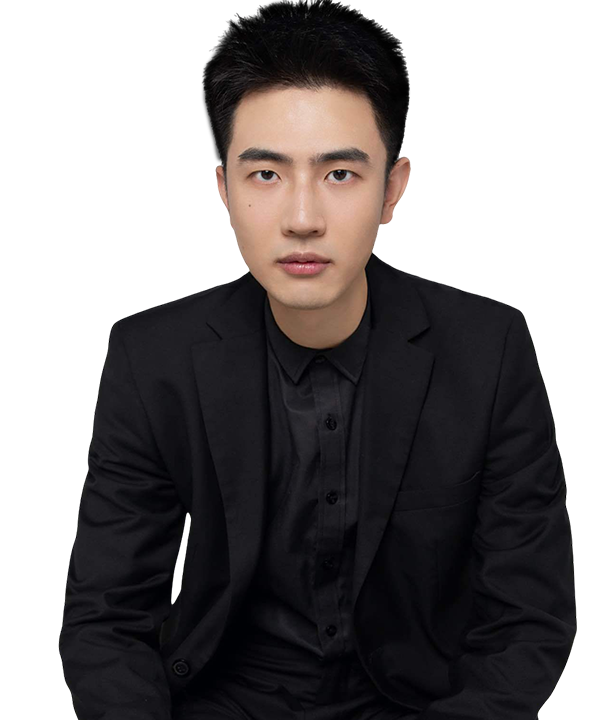©2024 Zhejiang Zhiben Law Firm. All rights reserved.Zhejiang
LABEL: Private Equity & Funds , Family wealth security and inheritance ,
Based on the authority of the trustee of a family trust, overseas family trusts can be divided into two categories: fixed trusts and discretionary trusts. In the establishment stage of a fixed trust, the settlor determines the distribution plan of each beneficiary's share of beneficial rights in the trust contract; In the establishment stage of a discretionary trust, the settlor usually determines the relevant parties as beneficiaries and authorizes the trustee to have discretionary power over the actual beneficiaries and their share of beneficial rights during the trust management stage. Compared to fixed trusts, trustees of discretionary trusts typically have broader trust management powers. Based on this, a fully fledged trust usually has a stronger function of isolating trust property from the settlor's property and providing stronger protection for trust property.In this issue, we choose to share the famous family trust case heard by the High Court of Hong Kong from 2018 to 2020- the case of Ms. Luo Du Li Jun v. An International Trust Limited, and explore the practice and precedent inspiration of power and obligation allocation between the settlor and the trustee from a legal perspective.
1、 Case Review
In 1984, Mr. Luo Yingshi ("Mr. Luo") and Ms. Luo Dulijun ("Mrs. Luo"), the founders of Eagle King Group, respectively established a full trust with the main purpose of achieving long-term inheritance of family wealth and planning for inheritance tax.
In 1984, two trust assets were merged and injected into Mr. Luo Trust, and renamed The Lo Family Trust ("Trust").
In 1999, a certain international trust limited company ("trustee", defendant in this case) became the trustee of the trust.
The trust agreement for establishing a trust clearly grants the trustee extensive powers to designate or apply the trust principal and trust income, invest and manage the trust fund, and stipulates that the trustee has absolute and uncontrolled discretion. The trust assets mainly consist of Mr. and Mrs. Luo's equity in Great Eagle Holdings Limited ("GE Company"). The beneficiaries of the trust include Mr. Luo, Mrs. Luo, their children, and their spouses.
In September 2006, Mr. Luo passed away. From January 2016 to December 2017, Mrs. Luo sent a total of 10 letters to the trustee, with the key points summarized as follows:
Request the trustee to divide the trust fund into 1000 voting shares and distribute them according to the provisions of the attached distribution table;
Request the trustee to allocate all trust funds to Mrs. Luo or her designated entity;
Request the trustee to use the trust fund to purchase a specific number of GE shares at a price not exceeding the specified amount per day;
Request the trustee to remove the designated beneficiaries from the list of eligible beneficiaries and add them as excluded persons of the trust.
The trustee believes that Mrs. Luo's above instructions are an unexplained and atypical deviation from the past management of the trust, and therefore did not act in accordance with the above instructions; The trustee also proposed a trust restructuring plan and informed Mrs. Luo and other beneficiaries that if they cannot reach an agreement on the restructuring plan within a certain period of time, they will apply to the court for instructions. Mrs. Luo filed court lawsuits against the trustee at the end of 2016 and 2017 respectively, requesting the court to order the trustee to comply with their instructions or to compensate for damages for failure to comply with their instructions, and to remove her trustee position. The court's ruling ultimately did not support Mrs. Luo's request.
2、 Legal inspiration
(1) The trustee of a discretionary trust has no obligation and should not only follow the instructions of the settlor, but should use their own judgment to make decisions
In this case, Mrs. Luo advocates that the trustee should exercise their powers in accordance with Mrs. Luo's written request or instructions, or make the instructions of the principal the primary or foremost consideration. One of the main reasons is that there is a certain common understanding between the principal and the trustee (including the original trustee). The court ruled that Mrs. Luo's claim was unreasonable, with the main reasons including:
If the principal claims that the trustee should follow the instructions of the principal to exercise the trust power, it conflicts with the terms of the trust contract of a fully fledged trust.
The trust agreement between Mrs. Luo and the trustee clearly grants the trustee "absolute and uncontrolled discretion".
Oral evidence and subjective intentions of either party before, during, and after the establishment of the trust are only allowed to be considered in the absence of a trust agreement.
Although Mrs. Luo has made requests or instructions to the trustee through a letter of intent, the letter of intent usually does not have legal binding force on the trustee.
2. The court will review the trustee's exercise of trust powers or discretionary powers based on the following legal principles.
The trustee must exercise their own judgment when exercising their powers or discretion.
When elaborating on this principle, the court cited the views of Judge Mervyn Davies in Turner v Turner [1984] Ch 100. In this case, Mr. Turner, as the principal, established an irrevocable full trust for his wife, children, and others in 1967. The trustees were his father, sister-in-law, and others who had no experience or knowledge in trust affairs. After the establishment of the trust, the trustee is completely unaware of their duties and obligations as a trustee when exercising relevant powers, and only signs and agrees on relevant documents as requested by the settlor Mr. Turner. Judge Mervyn Davies pointed out that when a trustee exercises their power, in addition to complying with the trust agreement and not engaging in unauthorized actions, they must also fulfill three specific obligations: (1) regularly consider whether the power should be exercised, (2) consider the scope of the power's objectives, and (3) consider the appropriateness of specific decision-making matters; If the trustee has never fulfilled their duty of prudence in exercising their powers, their exercise of trust powers will be deemed invalid.
The trustee cannot simply follow the instructions of others, otherwise it constitutes a breach of trust.
The trustee may exercise the power appropriately to give effect to the wishes of the beneficiary or the principal, provided that they have considered the relevant matters and made the final decision themselves.
If the trustee considers in good faith every request of the settlor, considers the request to be reasonable, and considers it appropriate to comply with the request for the benefit of the trust beneficiaries, this is also managing the trust appropriately. The repeated compliance of the trustee with the wishes of the principal does not necessarily mean that they have waived their duties.
(2) Simultaneously serving as a trustee for multiple trusts investing in the same company does not necessarily constitute a conflict of interest
The trustee is also the trustee of a family trust ("Children's Trust") established by one of Mrs. Luo's children, and the Children's Trust also invests in GE's stocks. Therefore, Mrs. Luo claims that there is a conflict of interest for the trustee. But the court ultimately did not support the claim, mainly for the following reasons:
The standard for determining the existence of a conflict of interest in a trustee is that a rational person would consider the possibility of a conflict occurring to be true and reasonable when examining the relevant facts and circumstances of the case. In this case, although the trustee serves as the trustee of both the Mrs. Luo Trust and the Children's Trust, their specific responsibilities and actions are not the same. In Mrs. Luo's trust, the trustee has the right to invest in the trust; But in a children's trust, the trustee does not have the power to make investment decisions, so the children's trust's investment in GE company is not carried out according to the instructions of the trustee. Therefore, the court does not consider the trustee to have a substantial conflict of interest.
2. It is common for professional trust companies to act as trustees in multiple trusts investing in the same listed company, and cannot be used alone as a basis for determining conflicts of interest among trustees.
epilogue
In this case, there is a dispute between Mrs. Luo and the trustee regarding whether the trustee should follow the instructions of the principal to exercise their powers, whether the trustee's relevant actions constitute a breach of trust, and whether there is a conflict of interest among the trustees. These issues are often encountered in the practice of establishing overseas family trusts with corporate equity (including unlisted family businesses and listed company equity) as the main trust assets. Therefore, the author also suggests that family founders carefully consider potential disputes that may arise during the establishment stage of the family trust, taking into account the situation of family members and assets, especially in terms of trust investment and property distribution. They should properly agree on the trust purpose, reasonably allocate the rights and obligations of the trustor and trustee (as well as other trust parties), and communicate with all parties to the trust in advance if necessary, in order to effectively reduce the risk of trust default disputes and trust property losses.





